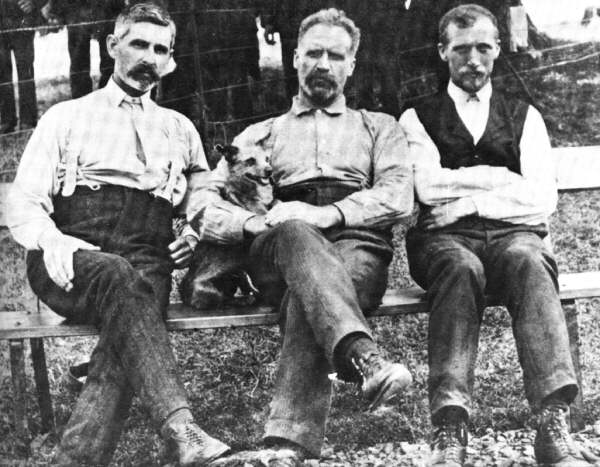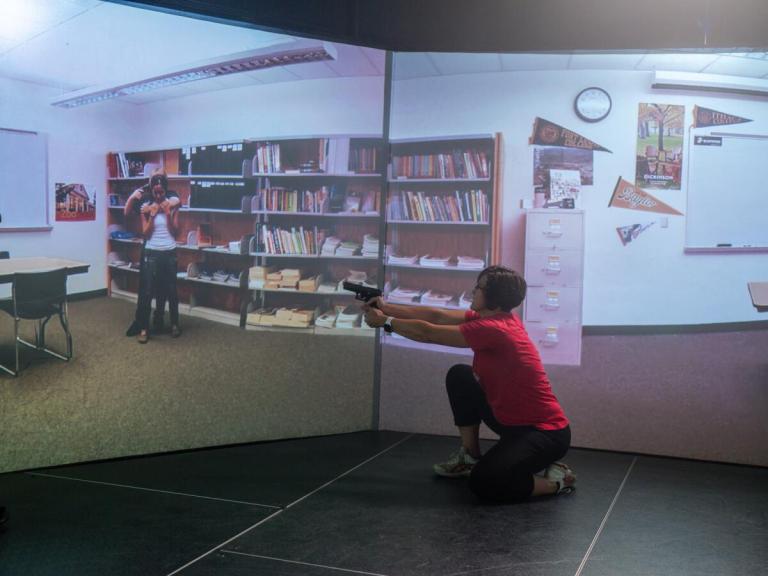
I Was Raised In A Christian Religious Sect Called ‘Two By Twos’
As for my childhood, most of my friends probably had no idea that I was part of a religious cult that met in homes twice a week.
By ![]() Cody Boyte
Cody Boyte

Producer’s note: Someone on Quora asked: What Was It Like to X?: What’s it like to grow up in a “cult”? Here is one of the best answers that’s been pulled from the thread.
![]()
Until I was 12, I was raised in a borderline cult. It was a Christian religious sect referred to by outsiders as “Two By Twos” or the “no name church,” but we all referred to it as “meeting” or “The Truth”. When people asked me the name of the church I went to when I was a child I would say that my church didn’t have a name, we just met in homes. They all thought I was a Quaker, even though we lived in California where Quakers don’t have substantial numbers.
The cult meant that I had a somewhat particular childhood, though frankly I feel like most of the practices ended up making me a better person. I think that may be due to the fact that our family left the church when I was twelve years old, allowing me to exit before I’d created a solid identity as part of the community.
As for my childhood, most of my friends probably had no idea that I was part of a religious cult that met in homes twice a week. On Sunday mornings and Wednesday evenings we would attend “meetings” in a local home. When I was very young we drove to a an older woman’s house for our meetings, but as my parents become more successful, both in the church and monetarily, we started having the meetings in our house. At that time my parents were considered very upstanding, model members. When I was 7 or 8 we moved to Colorado from California and again started attending church in someone else’s home. Every year we would go to at least one “convention” where all of the members in the state would gather for a week to listen to the “workers,” who acted as the ministers by traveling from home meeting to home meeting in their “field” throughout the year. Once a month, two or three meetings would gather in the largest local house for a “union meeting”. That afternoon all of the union meetings in the city would meet at a local high school auditorium for messages from the local workers. This was as close to a normal church service as we got.
From the perspective of a child however, most of the mechanics of the church don’t matter much except that you have to try to figure out how to stave off boredom. Because the meetings happened with 15-20 people sitting in chairs facing each other, letting one person explain their understanding of the passage at hand, all the way around the room while skipping children and anyone who had not yet “professed”, there was an expectation that children would behave themselves. The word of God was being spoken and we should pay attention, or at the least not make any noise. It was probably a similar expectation to the way children were expected to behave at the table in the 1800s and earlier. If we did speak up, make noise, fidget too much, or otherwise fail to adhere to the expectations of the group, we would be taken into the bathroom and spanked. That only happened to me once or twice. I learned quickly to open the hymn book, look at the notes and make up stories in my head or listen to what everyone was saying while trying to figure out what it all meant.
I truly believe this was a massive benefit for me. I’m the type of person who, without such rigorous training, would have most likely had ADD issues. I have some problems staying focused as it is, but I learned an immense amount of self-control as a child. It also helped that, because of our requirement to behave for hours at a time, as children we were constantly complimented by other parents who couldn’t believe how well-behaved we were. I remember thoroughly enjoying the compliments and feeling superior to other children. Additionally, as I grew older there was the expectation that I would “profess” somewhere between 12-15 years old and join the conversation going around the room. From the time I was 9 or 10 I began to listen intently to both the analysis different people gave and to the stories in the Bible. I feel like this expectation from an early age required that I treat myself as an adult and force myself to think like an adult.
As an aside, as an unreligious person today I still probably have a deeper understanding of the Bible than 80% of practicing Christians. I remember once, after we left/were kicked out of meeting and we were trying out new churches, my siblings and I were asked to go to the children’s ministry with the other kids to learn the stories of Jesus. We went to a basement room, heard a story, and then were asked a few questions. As a 12-year-old I remember answering every question the teacher threw at me and even extended the story past where he had stopped, explaining the context for the rest of the story. I distinctly remember thinking the rest of the kids were dumb or just never paid attention. I didn’t know that my expectations from a young age had been so much different.
As part of the church, we often had friends and “workers” at our house. They would have dinner with us, play cards, and chat deep into the night with my parents. The expectation was that, as children, we were to behave, eat nicely, and leave after cleaning the table. The only exception was that you could keep your mouth shut and listen as long as you liked, IF you only said anything when you had something of real value to contribute. As a child I remember sitting for hours listening to conversations just so I could find a moment to say something the rest of the table thought was valuable. I feel like this too was immensely valuable training for me as a child. I think the positive effects, both of the intellectual conversations that happened around me and of being forced to hold my tongue unless I could add value, continue to be felt in my life today.
Outside of the religious behavior or outside of the context of “meeting,” there were a few other major differences. My sister and mother always had to wear skirts or dresses and wore their hair either long or in buns. They weren’t allowed to wear jewelry or makeup. If you see women in dresses wearing their hair in buns and they aren’t hipsters, there’s a pretty good chance you just ran across someone who goes to meeting. Also, television was considered the work of the devil. We weren’t allowed to have a television or go to the movies. I snuck a few tv shows in here and there at friend’s houses or when we were traveling. My siblings and I would watch as much TV as we could when we were on vacation – in a hotel – because otherwise we never saw it. As a kid it never really bothered me. Young kids didn’t talk about television much, except when I was at their houses and then we’d just watch a movie or something. As I got older my lack of television actually became MORE of an issue because I didn’t have the shared history everyone else had. Even to this day my friends will say something about an old show or quote something I’ve never heard and I have to explain that we didn’t get a television until I was 12. Even then, until I left the house at 18, we were only allowed to watch 1 television show a week and sports. Sports were considered okay to watch because they weren’t the work of the devil, just a stream of something we would go see live.
Since we didn’t have television, I found other ways to entertain myself. Computers weren’t off-limits, so by the time I was in second grade I knew more about them than my mother and father. In the second grade I also got my first email address (1994 – AOL). I didn’t have anyone to send emails too, but I still enjoyed exploring the old AOL interface/chat rooms. I also read an exceptional amount and spent hours playing outside with my brother and sister.
All in all, growing up in a borderline cult, especially one that most people don’t even know exists, really wasn’t much of an issue. All of my friends were in the cult, everyone I knew was in the cult, and it was very much like an extended family. I felt very cared for and comfortable. Everyone I met was a friend, there was no such thing as a stranger except when we weren’t around people from meeting. I wouldn’t suggest it to others, especially as you get older, but as a child it wasn’t such a bad thing. ![]()











